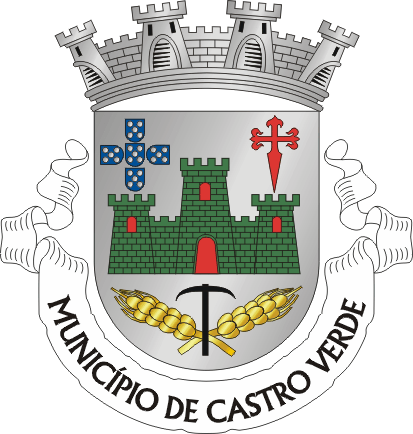Castro Verde (city): Difference between revisions
Knorrepoes (talk | contribs) (Created page with '{|width="100%" style="color:black; background-color:#ffffcc;" |width="15%"|50 px|left |width="70%" align="center" |'''Heraldry of the World<br>Civic heraldr…') |
Knorrepoes (talk | contribs) m (Text replace - "Arms of Freguesias" to "Freguesias") |
||
| Line 18: | Line 18: | ||
The municipality was owned and administrated by the Santiago Military Order in medieval times (during the Christian reconquest of the Iberian Peninsula), which is symbolised by the red Santiago Cross. The 5 blue shields come from the national Portuguese coat of arms. | The municipality was owned and administrated by the Santiago Military Order in medieval times (during the Christian reconquest of the Iberian Peninsula), which is symbolised by the red Santiago Cross. The 5 blue shields come from the national Portuguese coat of arms. | ||
Freguesias in Castro Verde : | |||
*[[Castro Verde (freguesia)]] | *[[Castro Verde (freguesia)]] | ||
*[[Entradas]] | *[[Entradas]] | ||
Revision as of 15:41, 21 December 2010
| Heraldry of the World Civic heraldry of Portugal - Brasões dos municípios portugueses |
CASTRO VERDE
District : Beja
Origin/meaning :
The arms representing the town and municipality of Castro Verde are very recent, dating from the 1980s.
Castro Verde means "Green Castle", thus the green castle portrayed on the town's arms. The wheat stands for the main activity in the municipality: agriculture (namely wheat production). The pick represents the rich soil and mining activities (mainly copper).
The municipality was owned and administrated by the Santiago Military Order in medieval times (during the Christian reconquest of the Iberian Peninsula), which is symbolised by the red Santiago Cross. The 5 blue shields come from the national Portuguese coat of arms.
Freguesias in Castro Verde :
Literature : image send by Sergio Horta; background from Tiago Penedo, Portugal.
